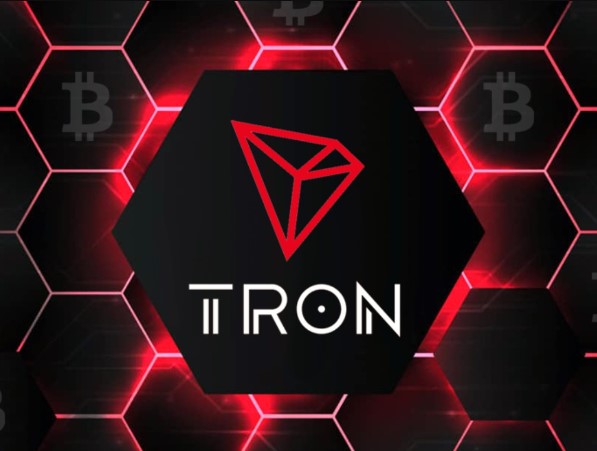
Exploring TRON: A Revolutionary Blockchain Platform

In the rapidly evolving landscape of blockchain technology, TRON has emerged as a prominent player, offering a decentralized platform for content distribution and entertainment applications. With its visionary approach and innovative features, TRON has garnered significant attention in the crypto community. In this article, we delve into the intricacies of TRON, exploring its technology, ecosystem, impact, and future prospects.
The Vision of TRON
TRON, founded by Justin Sun, aims to create a decentralized internet where content creators have full control over their work and users can access content without intermediaries. The core vision revolves around empowering individuals by eliminating barriers to content creation and distribution.
Understanding TRON’s Blockchain Technology
At the heart of TRON lies its robust blockchain technology, characterized by its Proof of Stake mechanism and support for smart contracts. TRON’s consensus mechanism ensures high scalability and efficiency, facilitating seamless transactions and interactions within the network.
TRON’s Proof of Stake Mechanism
TRON utilizes a Delegated Proof of Stake (DPoS) consensus mechanism, where token holders can vote for Super Representatives who validate transactions and maintain the network. This approach enhances decentralization and incentivizes participation from the community.
Smart Contracts on TRON
Smart contracts play a pivotal role in the TRON ecosystem, enabling developers to create decentralized applications (DApps) and execute programmable agreements autonomously. TRON’s support for smart contracts opens up a myriad of possibilities for building innovative solutions on its platform.
The TRON Ecosystem
TRON’s ecosystem encompasses various components that contribute to its functionality and usability. The TRON Virtual Machine (TVM) serves as the execution environment for smart contracts, facilitating seamless deployment and execution of code.
TRON DApps and DEXs
TRON hosts a diverse array of decentralized applications and decentralized exchanges (DEXs) that leverage its blockchain infrastructure. These DApps span across gaming, finance, social media, and other sectors, showcasing the versatility of the TRON platform.
TRON’s Journey and Milestones
Since its inception, TRON has achieved significant milestones, including mainnet launches, protocol upgrades, and strategic partnerships. These milestones underscore TRON’s commitment to innovation and its progress towards realizing its vision of a decentralized internet.
Comparing TRON with Other Blockchain Platforms
In comparison to other blockchain platforms like Ethereum and EOS, TRON distinguishes itself through its focus on scalability, low transaction fees, and user-friendly development environment. Each platform has its strengths and weaknesses, catering to different use cases and preferences.
TRON’s Impact on Decentralization
TRON’s decentralized nature empowers individuals and reduces reliance on centralized intermediaries, fostering a more equitable and transparent ecosystem. By enabling content creators to monetize their work directly and users to access content without restrictions, TRON promotes decentralization in the digital landscape.
Advantages and Disadvantages of TRON
TRON offers several advantages, including high throughput, low latency, and a vibrant developer community. However, challenges such as regulatory scrutiny and competition from other platforms pose potential hurdles to its growth and adoption.
TRON’s Native Cryptocurrency – TRX
TRX is the native cryptocurrency of the TRON network, serving as a medium of exchange and a store of value within the ecosystem. TRX holders can participate in governance decisions, stake their tokens, and interact with DApps built on the TRON platform.
Recent Developments and Partnerships
TRON continues to forge strategic partnerships and explore new avenues for growth and innovation. Recent collaborations with industry-leading companies and initiatives demonstrate TRON’s commitment to expanding its ecosystem and enhancing its capabilities.
Regulations and Challenges Faced by TRON
As with any emerging technology, TRON faces regulatory challenges and uncertainties in various jurisdictions. Navigating regulatory frameworks while maintaining compliance is crucial for TRON’s long-term success and sustainability.
Future Prospects of TRON
Looking ahead, TRON is poised to further disrupt traditional models of content distribution and entertainment. With ongoing development efforts, strategic initiatives, and community support, TRON aims to realize its vision of a decentralized internet that empowers individuals globally.
Conclusion
In conclusion, TRON stands at the forefront of blockchain innovation, offering a decentralized platform with immense potential for content creators, developers, and users alike. With its visionary leadership, robust technology, and growing ecosystem, TRON is reshaping the digital landscape and paving the way for a more inclusive and decentralized future.
Unique FAQs
- Is TRON similar to Bitcoin or Ethereum? TRON differs from Bitcoin and Ethereum in its focus on decentralized content distribution and entertainment applications. While Bitcoin and Ethereum primarily serve as digital currencies and platforms for smart contracts, TRON offers a comprehensive ecosystem tailored for content creators and users.
- How can I participate in the TRON ecosystem? You can participate in the TRON ecosystem by acquiring TRX tokens and engaging with decentralized applications (DApps) built on the TRON platform. Additionally, you can contribute to the network by staking your TRX tokens or voting for Super Representatives.
- What are some popular DApps on the TRON platform? Some popular DApps on the TRON platform include decentralized exchanges (DEXs) like JustSwap, gaming platforms like WINk, and social media platforms like DLive. These DApps offer various opportunities for users to interact and transact within the TRON ecosystem.
- Is TRON’s technology environmentally friendly? TRON’s Proof of Stake (PoS) mechanism is more energy-efficient compared to traditional Proof of Work (PoW) consensus algorithms used by cryptocurrencies like Bitcoin. By leveraging PoS, TRON minimizes energy consumption and promotes sustainability in blockchain technology.
-
What sets TRON apart from other blockchain platforms? TRON distinguishes itself through its focus on scalability, high throughput, and low transaction fees. Additionally, its support for smart contracts and decentralized applications (DApps) provides developers with a versatile and user-friendly platform for innovation.